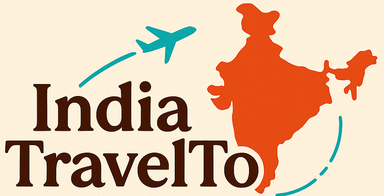Preparing for a Long-Term Stay in Ethiopia
Dreaming of exploring the vibrant culture and stunning landscapes of Ethiopia? From navigating visa requirements (including 30-day visas on arrival and longer-term permits) to understanding the growing job market in sectors like agriculture and tourism, this comprehensive guide provides essential information for a successful extended stay. Discover tips for finding accommodation, managing the affordable cost of living, and immersing yourself in the local culture, language, and traditions. Prepare for a safe and enriching Ethiopian adventure by learning about healthcare, transportation, and important safety considerations. Start planning your unforgettable journey today!
Important information
- Visas are required for most nationalities to enter Ethiopia. A 30-day tourist visa can often be obtained upon arrival, with possible extensions. Longer stays necessitate a residence or work permit.
- Comprehensive health insurance is highly recommended, covering international travel and emergency medical care. Consult your doctor about necessary vaccinations, including Hepatitis A & B, Typhoid, and Tetanus-Diphtheria. Malaria prevention is crucial for some areas.
- The Ethiopian Birr (ETB) is the official currency, and cash is preferred. ATMs are available, but their reliability can be unpredictable, especially outside major cities. Notify your bank about your travel plans.
- Amharic is the official language. While English is spoken in tourist areas, learning basic Amharic phrases enhances your experience and shows respect for local culture.
- Ethiopia offers diverse climates. The dry season (October to June) is generally the best time to visit, but regional variations exist. Be prepared for different conditions depending on your destination.
Visas and Immigration Requirements for Ethiopia
Planning a longer trip to Ethiopia? You’ll need a visa. Many nationalities can get a 30-day visa upon arrival, sometimes extendable. For longer stays, you’ll need a permit, either a residence or work permit depending on your purpose. Business trips require a business permit, while extended vacations need a residence permit. Check with your local Ethiopian embassy or consulate for the latest rules and required documents. Besides a valid passport and the right visa, you’ll likely need proof of accommodation and maybe a letter of invitation. With the right preparation, you’re ready to explore Ethiopia. People entering Ethiopia require an eVisa. You can find more information and apply for your eVisa at eVisa Ethiopia.
Understanding Visa Types
Ethiopia offers various visa types for different purposes. Tourist visas are for short holidays. Business visas allow commercial activities, such as meetings and conferences. Student visas are required for those pursuing education in Ethiopia. Work visas, often requiring sponsorship from an Ethiopian employer, are mandatory for employment. Long-term resident visas are available for extended stays, usually based on investment or family ties. Each visa type has specific requirements and application procedures.
Visa Application Process and Fees
Obtain your Ethiopian visa online or in person. Apply through Ethiopia’s e-visa portal for online applications, or visit your nearest Ethiopian embassy or consulate. Required documents generally include a passport, a completed application form, photographs, and proof of travel arrangements. Visa fees depend on your nationality, visa type (tourist, business, etc.), and processing time. For the most current information on fees and requirements, consult the nearest Ethiopian embassy or consulate, or visit their official website.
Work Visa and Residence Permit Necessities
Foreign workers in Ethiopia require work permits. Those planning an extended stay need a residence permit. Long-term visitors may need either or both, depending on their purpose in the country. Tourist visas typically last 30 days, with possible extensions. However, it’s crucial to review the latest visa regulations before your trip, as these requirements are subject to change.
Navigating the Ethiopian Job Market
Foreign nationals seeking employment in Ethiopia’s burgeoning economy require a work permit from the Ministry of Labor and Social Affairs (MOLSA). Typically, your prospective employer sponsors your application. Essential documents usually include a valid passport, educational credentials, and a health certificate. It’s always wise to consult MOLSA or an immigration specialist directly, as requirements can change.
Ethiopia’s Growing Economy
Ethiopia’s economic growth fuels job creation across various sectors, particularly agriculture, manufacturing, and tourism.
- Agriculture remains a cornerstone, with coffee and flower exports leading the way.
- Manufacturing is also expanding, presenting opportunities in textiles, leather goods, and food processing.
- Tourism, driven by Ethiopia’s rich history and stunning landscapes, fuels growth in hospitality and related services.
Opportunities for Skilled Professionals
These dynamic sectors attract investors and skilled professionals seeking career advancement.
Requirements for Obtaining a Work Permit
If you’re a foreign national aiming to work in Ethiopia, you’ll need to gather a few key documents. A valid employment contract with a registered Ethiopian employer is essential. You’ll also need a residence permit from the Immigration, Nationality, and Vital Events Agency. A health certificate and a police clearance certificate from your home country are typically required as well. While your employer will usually sponsor your work permit application, specific requirements can vary based on your nationality and profession. Here’s a step-by-step guide to help you navigate the process:
Opportunities in Agriculture, Manufacturing, and Tourism
Ethiopia’s agricultural sector presents a wealth of opportunities, from cultivating crops and raising livestock to working in agro-processing. Manufacturing, particularly in textiles, leather, and food processing, also offers promising careers. Ethiopia’s booming tourism sector provides further options, including hospitality, tour guiding, and travel services. With Ethiopia’s continued growth, exciting possibilities await in these sectors:
- Agriculture: Cultivating crops, raising livestock, and working in agro-processing.
- Manufacturing: Textiles, leather, and food processing.
- Tourism: Hospitality, tour guiding, and travel services.
Finding Accommodation for Long-Term Stay
Finding accommodation in Ethiopia involves renting or buying. Useful resources include online property sites, local real estate agents, and social media groups. Leverage insights from expats and locals. For initial stays, consider short-term rentals or guesthouses to explore and find a permanent home. Explore different neighborhoods to get a feel for the area.
Renting vs Buying Property
Standards and Expectations for Accommodation
Relocating to Ethiopia requires careful consideration of housing options, as standards can vary greatly. Before committing to a long-term lease or even purchasing a property, thorough research is essential. Here’s what you need to know:
Managing Cost of Living in Ethiopia
Ethiopia offers a remarkably affordable cost of living, especially when compared to Western countries. Food, transportation, and accommodation are relatively inexpensive. However, imported items come with a higher price tag. Careful budgeting is essential for managing your finances effectively. Location significantly influences expenses; city life in Addis Ababa is more costly than in rural areas. Consider your lifestyle and spending patterns when creating a budget to better control your outgoings. Local markets offer significant savings compared to larger retailers, providing fresh produce and everyday necessities at lower prices. While imported goods remain more expensive, shopping at local markets can help stretch your budget further.
Budgeting for Daily Expenses
Living comfortably in Ethiopia is surprisingly affordable. Managing daily expenses is easy, even on a modest budget, thanks to the low cost of living. Tracking your spending helps your budget stretch further, allowing you to fully experience Ethiopia.
Healthcare System and Medical Precautions
Navigating healthcare in Ethiopia requires preparation due to its differences from Western standards. Comprehensive health insurance is vital for expats, covering both international travel and emergency medical care. Vaccinations against preventable diseases are strongly recommended for your safety. A basic medical kit with essential medications is advisable. Lastly, locate nearby healthcare facilities to ensure quick access in emergencies.
Health Precautions and Vaccinations
Planning a trip to Ethiopia? Prioritize your health with these essential preparations:
Importance of Medical Evacuation Insurance
Planning a trip to Ethiopia? U.S. citizens should strongly consider medical evacuation insurance. This insurance covers emergency transport to advanced medical facilities. This is especially important given Ethiopia’s limited healthcare infrastructure. Purchasing this coverage before your departure ensures access to quality care if needed.
Transportation and Travel Safety in Ethiopia
Traveling around Ethiopia offers diverse transportation options. For shorter distances, consider these choices:
For longer journeys between cities, consider these:
If you plan to explore remote areas, consider renting a vehicle. However, be sure to check road conditions and familiarize yourself with local driving regulations beforehand.
Local and Public Transportation Options
Traveling within Ethiopia offers a variety of transportation options to suit your needs. For urban exploration, cities like Addis Ababa offer a light rail system, city buses, taxis, and ride-sharing apps. Walking and biking are also popular choices, especially in city centers. To travel between major cities, domestic flights provide a convenient option. If you prefer independent travel, car rentals are readily available. Venturing into the countryside introduces you to the local charm of minibuses and horse-drawn carts. No matter where you’re headed in Ethiopia, you’ll find a suitable way to reach your destination.
Financial Considerations and Banking System
Cash is king in Ethiopia, where the official currency is the Ethiopian birr (ETB). Exchange foreign currency at authorized banks and bureaus, remembering to keep your receipts for converting birr back upon departure. While major credit cards are accepted at some larger hotels, their use isn’t common. ATMs are available in major cities, but their reliability can be unpredictable. Therefore, carrying sufficient cash, particularly outside urban areas, is highly recommended. Notify your bank of your travel plans to avoid any card issues abroad.
Handling Foreign Currency and Cash
When traveling in Ethiopia, it’s wise to carry both cash and cards. ATMs are not widely available, so having cash ensures you can make transactions. The official currency is the Ethiopian Birr (ETB). Opening a local bank account can simplify larger purchases, but be aware of potential foreign transaction fees. Monitor the fluctuating exchange rates, as they can impact your budget.
Education System and International Schools
Expat families have several schooling options for their children. International schools are a popular choice, often offering curricula like the International Baccalaureate (IB) or following national systems such as the American or British models. These schools usually use English as the language of instruction and cater to the needs of expat communities. Homeschooling is another increasingly popular option. Some families choose local private schools to immerse their children in the host country’s culture.
Options for Expat Children
Ethiopia provides excellent educational opportunities for expat families. International schools offer diverse curricula, such as the IB, American, and British systems, making it easier for children to adapt to a new culture and language. The diverse student body promotes global awareness, broadening students’ understanding of the world. Many schools offer enriching extracurricular activities like sports, music, and the arts, contributing to students’ overall growth and development. These schools provide a supportive and stimulating environment for expat children to thrive academically and personally.
Communication and Language Barriers
Enhance your Ethiopian adventure by learning basic Amharic phrases. Amharic, the official language of Ethiopia, is essential for navigating daily life outside tourist areas. Even simple greetings like “hello” (ሰላም – selam) and “thank you” (አመሰግናለሁ – ameseginalehu) demonstrate respect and facilitate communication.
Learning Basic Amharic
Learning basic Amharic can significantly enhance your Ethiopian experience, making it easier to connect with locals. Numerous resources are available to help you learn, including language learning apps, online courses, and phrasebooks. Focus on practical phrases like greetings, asking for directions, and ordering food. Even a few words demonstrate respect and foster connections, enriching your cultural immersion. Any effort to learn Amharic, even if you don’t achieve fluency before your trip, will be appreciated by locals.
Cultural Understanding and Social Etiquette
Understanding Ethiopian Social Norms and EtiquetteEthiopian culture is rich and significant, and integrating into its society involves understanding its social customs. Greetings are highly valued, often involving handshakes, hugs, or cheek kisses between friends. Sharing food from a communal plate is customary, and eating with the right hand shows respect. Coffee ceremonies are important, and learning about them enhances cultural immersion and community integration.
Cultural Heritage and Social Norms
Ethiopia, a land of vibrant history and diverse traditions, offers a rich cultural experience. Religious life is a tapestry woven from Ethiopian Orthodox Tewahedo Christianity, Islam, and indigenous beliefs. Strong family and community ties are reflected in greetings that often involve handshakes and inquiries about one’s well-being. Conservative attire is common, especially outside of cities. Public displays of affection are generally avoided. Remember to remove your shoes before entering homes and some businesses. Sharing meals is central to Ethiopian hospitality, and the “gursha” tradition of hand-feeding demonstrates deep friendship and trust. Bargaining is expected in markets, but politeness is always key. It’s courteous to ask permission before taking photographs, particularly of people. By understanding these customs, you’ll show respect and enjoy richer interactions with Ethiopians.
Safety and Security Considerations
Exercise caution in Ethiopia, especially in crowded areas or at night. Keep a close eye on your belongings and be aware of your surroundings. Research region-specific safety concerns, as risks vary across the country. Seek local advice for up-to-date information.
Crime Rates and Security Tips
Climate and Environmental Factors in Ethiopia
Ethiopia’s diverse landscape boasts a range of climates, from the cool highlands to the hot, dry lowlands. The rainy season, Kiremt, typically runs from June to September. October to May offers dry weather perfect for exploring the country’s natural wonders. However, microclimates create localized variations. For instance, the eastern lowlands remain consistently hot, while the Simien Mountains can be surprisingly cold, even during the dry season. Therefore, understanding these regional nuances is crucial for planning a comfortable, extended journey.
Weather Conditions and Best Time to Visit
Ethiopia experiences diverse weather, but the best time to visit is during the dry season, from October to June. This period offers abundant sunshine and comfortable temperatures, perfect for exploring the country’s varied landscapes. Expect clear skies and pleasant warmth. However, remember that regional variations exist, so weather can differ across the country.









